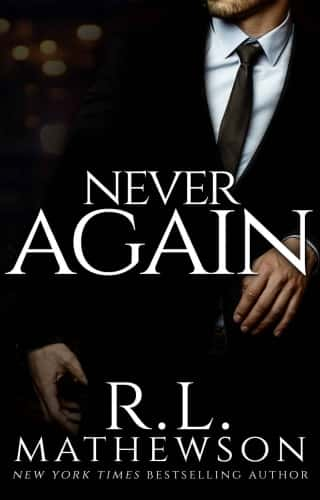Chapter 143
On that day, the Knight of Truth did not save us from the evil that had been prophesied. But from the evil brought by the prophesier.
—From Knights of Wind and Truth, page 281
S zeth moved among the whispers made manifest. As he killed his sister, giving her the final death, the whispers became less accusatory. Indeed, they grew welcoming.
Join us.
The Truthwatcher, seeing that her ploy hadn’t worked, howled and came for Szeth—and Szeth cut her down, with mercy. Then it was only him and his father.
Szeth strode forward, his arm a writhing mass of agony, Nightblood screaming for blood in his ears—accompanied by a chorus of shadows.
Join us!
He met his father, who still wept, and they clashed—though after a few quick meetings of black sword against Blade, Szeth knew Neturo was no match for him. Even though he’d trained, Neturo was more bureaucrat than warrior.
Szeth pushed Neturo—blade against Blade—back until he hit a stone rock formation. Szeth held him there, eye to eye.
“How long?” Szeth whispered. “How long did you know?”
“Si … Sivi told me, when she wasn’t supposed to, that they had a new God. Our first year at Pozen’s monastery. I started training with the Blades to become Bondsmith then.”
A real answer. Neturo spoke with gritted teeth, forcing the sentences through, but it did seem to be him. His father’s voice.
It was enough that Szeth almost wavered. “Why didn’t you tell me, Father? You had answers. That’s all I was seeking.”
“Szeth …” Neturo said. “I was following you because I thought you had answers. The young man always so certain what was right. The youth who bested all who came against him. The man who was so direct, so certain. When I found the Honorbearers believing something impossible … I thought you’d find the truth, Szeth.”
“So you served the thing?” Szeth demanded. “You took up the Blade, you became an Honorbearer, you banished me?”
“Every step felt so natural …” Neturo said. “Until … it had me, Szeth. It had me. ” Tears leaked down his face.
An emotion was made complete in Szeth; a circle that had begun the day when they’d first found that rock, and his father had refused to decide what to do. Parents were just people. His had loved him; Szeth knew that. He loved them in turn. Enough to do what came next.
Szeth let himself be shoved back by Neturo, then ducked the following sweep and stabbed Nightblood through the chest of his father.
“Thank you.” With a sigh of relief, Neturo-son-Vallano vanished into dark mist. His familiar voice joined the shadows.
Szeth fell to his knees, holding Nightblood in front of him, while the sword exulted. EVIL! It had feasted on all it had killed, but did not stop. It reached for Szeth’s soul. An ending? It would be so easy to let Nightblood take him.
He glanced to the side, and saw Ishar sitting up near Kaladin, restored. There was a lightness to the air and to the sky. So blue. Szeth had returned to Shinovar with Truth. Exiled, now restored.
The land was whole again.
Time to die, Szeth thought. It is what I decide. I can decide for myself. I …
Yet …
If he did that, it would betray everything Kaladin had taught him. Yes, Szeth could choose.
And he needed to choose better.
“I’m sorry, Father,” Szeth said, sobbing. “I cannot go with you. Not … not this time.”
Live, then, the shadows whispered. Live and do better.
With teeth gritted against the pain, he started toward the sheath—but Kaladin’s Stormlight was finally out, and the pain brought Szeth to his knees again. Unable to walk, he forcibly pried his fingers off Nightblood. One at a time.
The sword kept drinking.
With a howl, Szeth cast the weapon away. It spun like a dancer, point against the ground, still twisting—like a top released from its string. It stayed upright, spraying darkness around it and screaming in a voice that lacked any of the affable friendliness Szeth had known in it.
DESTROY. EVIL!
Kaladin watched from where he had fallen to the pain. Szeth began to disintegrate to dark smoke, his hand evaporating, then his arm. Kaladin stretched out his hand, trailing its own dark smoke, toward his friend. The wind blew around him as if frantic, and Syl was screaming in pain.
“Stop it, Ishar!” Nale’s voice, distant.
“I cannot. I … I cannot, Nale! The sword will consume me if I touch it! There is no Stormlight. It has taken it all …”
Kaladin needed to replace its sheath, but he couldn’t speak, couldn’t even … think …
Szeth … Szeth’s arm was gone … He was dying.
Then, a quiet voice.
I … I am not a thing.
“Rule one,” Kaladin whispered, searching for the voice. Landing on the spinning sword.
I … I can choose.
Evidently someone other than Szeth had listened to the lessons Kaladin had been teaching.
“You are not a thing, Nightblood,” Kaladin said.
I AM NOT A THING!
The pain vanished. Nightblood spun to a stop, lazily, the smoke fading away. The black sword balanced on its point for a second, then clattered to the stones.
A dozing voice seemed to whisper, I … will not … kill my friends.
Kaladin heaved a sigh, worn out completely, and rested his head against the stone ground. Closing his eyes.
In that moment, he felt something even more disturbing.
The spren cried out.
And the very soul of the world tore.
Shallan lay in Shadesmar on one of the platforms in front of Urithiru, feeling worn out. She was joined by Pattern, Testament, and the two wounded spren who had served the Ghostbloods.
Storms. What a day. She felt like paint on a palette after a vigorous mixing to blend colors. “Damnation. What happened?”
“Ba-Ado-Mishram,” Pattern said, sitting up in a motion that was distinctly inhuman. Not stretching, or getting into position, or leveraging himself with his arms. He just sat up like a bent hinge. “She escaped back into the Cognitive Realm where she is most comfortable, and carried us with her. Mmm … that’s probably good, right?”
Shallan sat and spotted Renarin and Rlain nearby on the same platform, helping one another stand. Then she made the mistake of looking up.
Two violent storms clashed against one another. Iridescent mother-of-pearl against red-gold. In Shadesmar, they manifested like two clouds of ink in water, each trying to overtake the other.
“Dalinar and Odium?” she asked.
“Yup!” Pattern said. “I think we might be in danger here. Ha ha.”
“Buddy,” she said, forcing herself to her feet, “we need to work on your presentation. There.” She pointed to a figure on one of the glowing walkways between pillars on this side. A figure of black smoke with white eyes. Not Mishram, but an Unmade who was smaller, and looked more human than singer.
Together, Shallan, Pattern, and Testament helped the two wounded spren over to Sja-anat. She became more real, blackness trailing from her, and her eyes pits of white nothing.
“I will remember your care for my children,” she said.
“Eventually,” Shallan said, “you will need to pick a side, Sja-anat. What you did here … pitting Mraize and me against one another …”
“I did not create your disagreements,” she said. “I only made certain that whichever of you freed my sister, I would have had a hand in it. Mishram will hopefully remember that when she decides to deal out punishments for abandoning her long ago.”
Shallan gritted her teeth, meeting those voids of eyes. “I do not like being a pawn in your games.”
“I have said before, there is no game,” Sja-anat said. “Only survival for myself and those I love.” She looked at the sky sharply. “You should return to the Physical Realm. Now. ”
Shallan glanced toward the platform, which she’d left to meet Sja-anat. The two enormous spren of the Oathgate had crouched down, a posture she’d never seen from them before.
Shallan dashed toward the platform, where Rlain and Renarin waited. Just before she reached it, however, one of the Oathgate spren screamed. Though Renarin was holding out his hand toward Shallan, light surrounded him and Rlain, and they vanished.
She reached the platform a second too late.
Just as the sky went insane.
“You what ?” Taravangian demanded.
“I renounce my oaths,” Dalinar said. “I break our contract. I break the oaths and contracts that Honor has made with Odium—all of them. I will not make any of the choices presented to me. I release you. I break my oaths. ”
The power tore free of Dalinar.
The Stormfather shrieked as Dalinar’s divinity collapsed. The strength of Honor—which Dalinar had held for mere minutes—again made a corona around him. This time, it radiated betrayal and confusion.
You understood me! it cried.
Better than you think, Dalinar returned. There are still lessons to learn, stories to tell, but you cannot learn them with me. For you are not Honor. Not yet. Honor is far more than an oath kept.
Learn, see, and remember me, Dalinar told it. Ask yourself why.
The power screamed, and the tempest that had been blowing all this time suddenly affected Dalinar, making him stumble, snow biting his skin like arrowheads.
“How?” Taravangian said, looming above them as a storm, sounding legitimately stunned. “ Why? ”
“Keeping an oath is not an ultimate good, Taravangian,” Dalinar whispered. “It is only as good as the ideals it is sworn to. Uniting is not an ultimate good. It is only as good as the purposes for that unification.
“I have been bested by you. Continuing in this contract merely because I agreed to it … that would be the ultimate act of foolishness. You have won because you are smarter than I am. But you have not proven anything other than that. ”
Taravangian roared in defiance, then … then in glory as he realized this would mean his freedom. The contract, including Honor’s binding of Odium to this world, was finished. In a rage, he attacked …
And vaporized the Stormfather.
Dalinar bellowed in agony. He had expected to go first, and this was cruel—unnecessarily so. Still, Dalinar was met with one last confident gaze of the being’s eyes—and a knowledge that what remained of Tanavast felt redemption in this choice.
Then he was gone. Dalinar fell to his knees. He blinked through the pain, determined. Now the gambit, the way to buy time. Dalinar raised an arm against the wind, feeling so very, very small now that the power had left him. He was … like a ragged old uniform, once stretched across a powerful figure, now tattered remnants.
Honor’s power hovered there, glowing like its own third storm. It wanted a host so badly. It had waited millennia, and now it had been betrayed a second time. Taravangian, in turn, had just been confronted with the realization that he could have fought Dalinar and lost.
Taravangian would take the wrong lesson from that—Dalinar knew it. For their understanding of one another went both ways. He knew Taravangian would be worrying, right now, that he was too weak. That he might have been destroyed if Dalinar had actually fought him.
Taravangian reached timidly toward the power of Honor.
You always said, Taravangian, Dalinar thought, that you didn’t care about power. That you were only doing what you did because someone needed to do it. You claimed that power itself meant nothing to you …
Taravangian touched the strength and divinity of Honor, grabbing hold of it.
Now you reach your crossroads, old friend, Dalinar thought. Because if power is meaningless to you, then you will not need more of it.
“With this,” Taravangian whispered, “I am certain to win. Listen to me, Honor. I did not break the contract. I kept my oaths. I have let myself be bound by them again and again. I understand you, and how you feel right now. I am worthy .”
Dalinar held his breath. There was a lesson taught in the game towers, once you started to think you were strong enough …
The power paused, and looked toward Dalinar.
Go, Dalinar said. Watch. Learn.
The power accepted Taravangian at Dalinar’s urging. Though interestingly, a few small pieces of it split off and fled. Dalinar had not expected that.
Regardless, Taravangian took the power. Despite all he’d ever claimed, he drew it in, thirsting for more and Ascending to become a new god.
Retribution.
Retribution laughed, and that laugh vibrated through Dalinar. Somewhere, Wit was shouting in disbelief. Oddly, Dalinar could still feel that Connection. He felt, in fact, all of his Connections.
To Navani, he sent love.
To Adolin, he sent apologies.
To Renarin, he sent pride.
To the others, he sent courage.
I could not defeat Odium, he told them. But I can buy you time. For Odium is about to have his attention entirely consumed by a greater problem.
This was Dalinar’s final test: at long last, trusting someone else to do the job.
With a smile, he felt echoes through the cosmere. Each time Honor had gone to the other gods for help, they’d been content to leave Roshar alone. To make Odium someone else’s problem.
Dalinar could see the difference between giving up responsibility—as they had—and ensuring someone else had the chance you could not. As of now, the other gods’ attention fixated on Taravangian. Each of those vast beings witnessed the birth of the most powerful and dangerous thing that had existed since the Shattering of Adonalsium.
Those forces together acknowledged that they had an enemy. Freed from his constraints, supremely strong. He was the biggest threat in the entire cosmere.
“It’s called the Sunmaker’s Gambit,” Dalinar whispered. “Good luck, Taravangian.”
The winds picked up as Taravangian’s anger built. Dalinar closed his eyes, ready to die right there, in that furious storm, strong enough to flay his skin from his body. However, somehow within the tempest, Dalinar heard something: the sound of a man whimpering in pain.
So, Dalinar Kholin heaved himself up against the wind—his body breaking, and blood streaming from him—to fight it one last time.
 Fullepub
Fullepub 



